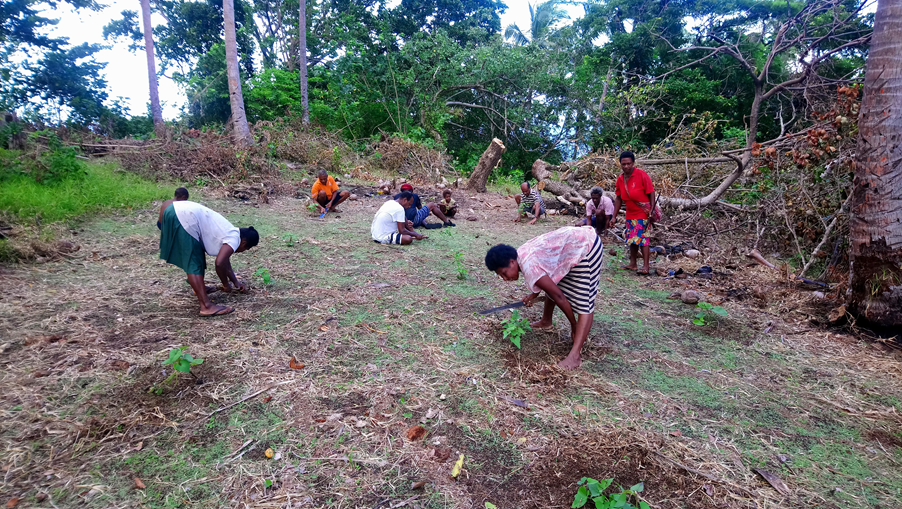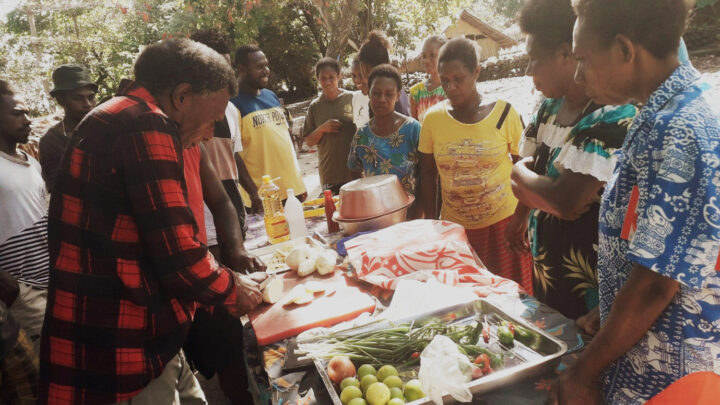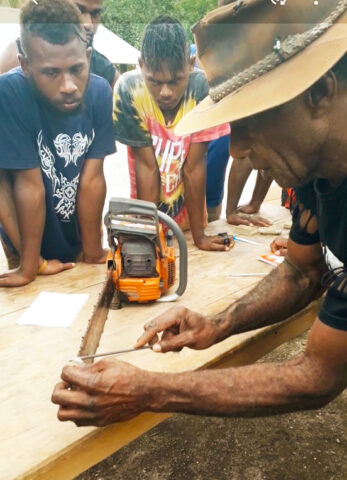A 15-day Food Security Agriculture Cluster (FSAC) response workshop has been held in two major communities – Diversbay and Lehali, on the remote Ureparapara island in TORBA province.
The training focused on enhancing food security and agribusiness opportunities.
The workshop is a joint initiative between the Ministry of Agriculture, Livestock, Forestry, Fisheries and Biosecurity (MALFFB) and the Vanuatu Skills Partnership (VSP) through the Torba Skills Centre.
The third largest island in the northernmost Banks group is home to a population of about 500 people.
Due to its remoteness, the island population does not have access to regular shipping services and is often affected by extreme weather events, which can affect food supply and leave the villages dependent on relief services.
TORBA MALFFB and the Vanuatu Skills Partnership identified this as a priority action area as the community may face exacerbated food security challenges in the future in light of the COVID-19 pandemic and ongoing impacts of climate change.
Industry Coach, John Morrison Bong was in charge of leading the FSAC workshop.
Resilient root crops were identified and promoted and participants were taught value addition techniques for the processing and preservation of local food for small scale businesses.
Coach Bong emphasises the need for increased production to increase supply and in turn keep commodity prices low in such times when financial constraints are felt in households due to the global economic impact of the COVID-19 pandemic.
“Farmers and producers must engage their work in commercial scale farming to increase harvests,” he said
“Value addition and production must also be increased so they can keep their selling prices low to attract customers from buying imported food.”
A nursery site for two fast-growing varieties of sweet potato was established at the Diversbay and Lehali communities.
Field demonstrations introduced participants to crop spacing requirements, seasonal crop calendar, and planting techniques of various root crops.
The workshop also detailed preservation of planting materials for before cyclone seasons to enable farmers to immediately replant after cyclones.
There was also a demonstration of local poultry rearing techniques resulting in the establishment of two poultry rearing facilities.
Bread production skills were also transferred, with the instalment of two community bread ovens for commercial purposes.
Finally, a cost effective locally designed mini mill demonstration was on display which generated great interest from sawmill operators, enabling them to produce quality timber from fallen trees immediately after a cyclone for the construction of emergency shelters.
A much-needed chainsaw maintenance demonstration was also provided.
A total of 74 individuals were registered as part this TORBA FSAC initiative through the TORBA Skills Centre.
The TORBA Skills Centre and the Vanuatu Skills Partnership are jointly supported by the Ministry of Education and Training and the Australian Government.






